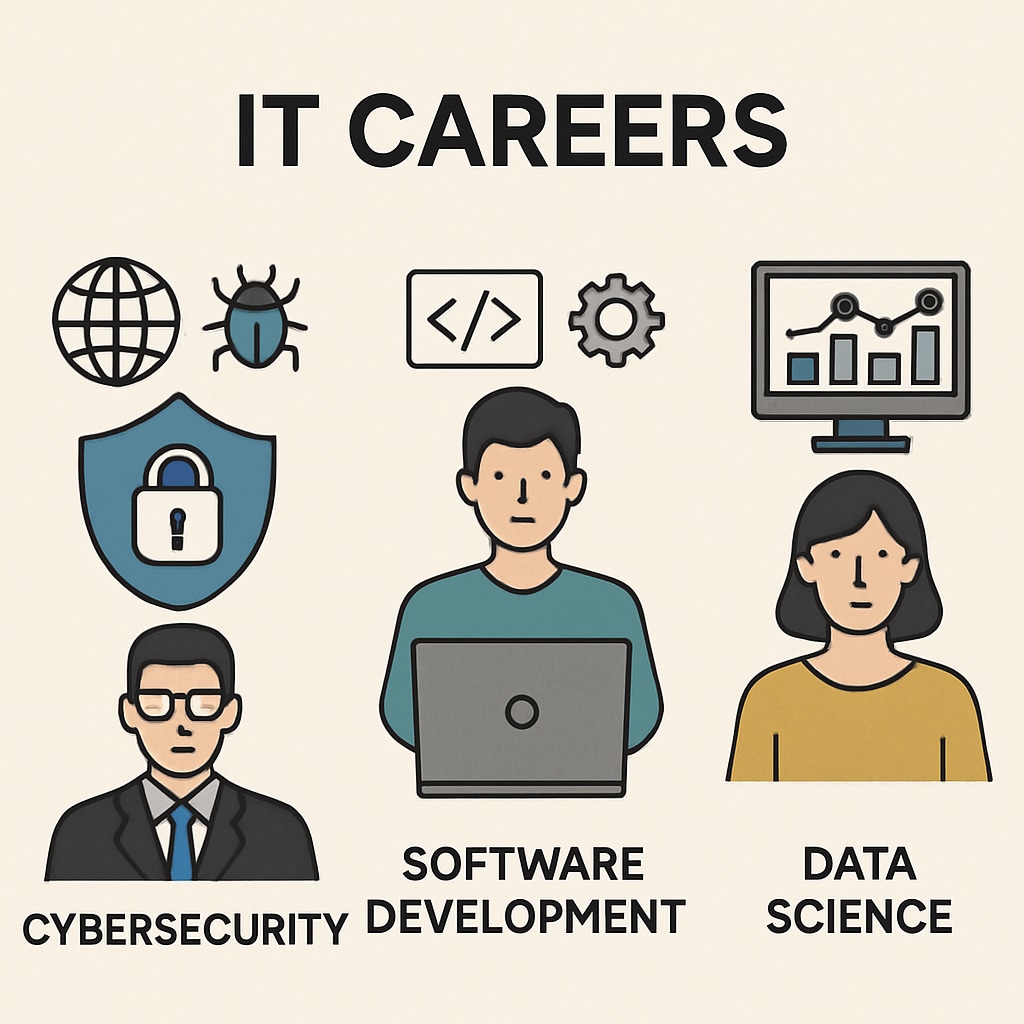Starting university can be overwhelming, especially when it involves career planning in IT and technology. The variety of IT specialties—from cybersecurity to software development—can leave freshmen feeling uncertain about where to begin. This article offers practical advice for university freshmen with little or no experience in IT, helping them identify their strengths, understand industry trends, and explore career options that align with their interests and long-term goals.

Understanding the IT Landscape
Before diving into career planning, it’s essential to understand the breadth of the IT field. IT professionals work in diverse areas like software engineering, cybersecurity, data science, and cloud computing. Each of these areas requires unique skills but shares a common foundation in problem-solving and technical expertise.
For example, cybersecurity focuses on protecting networks and data from threats, while software development involves creating applications and systems. By researching these fields, students can gain a clearer picture of what resonates with their interests.
- Cybersecurity: Ideal for those interested in tackling challenges related to digital security.
- Software Development: A rewarding field for creative problem-solvers who enjoy coding.
- Data Science: Perfect for students passionate about analyzing data and uncovering insights.
- Cloud Computing: A growing domain for individuals seeking expertise in scalable technologies.
For more on these roles, visit Information Technology on Wikipedia.
Assessing Your Strengths and Interests
One of the first steps in career planning is self-assessment. Ask yourself the following questions:
- Do I enjoy problem-solving and logical thinking?
- Am I interested in coding, design, or analytics?
- Do I prefer working independently or in a team environment?
These reflective questions can help you narrow down potential career paths. For example, if you enjoy logical thinking and teamwork, pursuing a role in cybersecurity might be a good fit. On the other hand, if you’re passionate about creativity and coding, software development could align with your goals.
In addition, tools like online personality tests and career aptitude platforms can offer deeper insights into your strengths. These assessments often highlight areas where your skills and interests overlap with IT roles.

Exploring Industry Trends
The IT industry is constantly evolving, so staying updated on trends is crucial for effective career planning. Here are some prominent areas of growth:
- Artificial Intelligence: AI is revolutionizing industries like healthcare, finance, and transportation.
- Cybersecurity: As cyber threats increase, demand for skilled professionals grows.
- Cloud Computing: Companies are shifting to cloud-based systems, creating opportunities for IT specialists.
- Data Analytics: Big data continues to drive innovation and decision-making.
Understanding these trends can help students align their career goals with market demands. For example, pursuing certifications or courses in AI or cloud computing can give you an edge in the job market. For more information, check out Information Technology on Britannica.
Building Skills and Gaining Experience
Even if you lack prior experience, university is the perfect time to start building your skill set. Here are practical ways to gain experience:
- Take introductory courses: Many universities offer beginner IT classes that cover programming, web design, and more.
- Join IT clubs: Collaborating with peers on projects can enhance both technical and teamwork skills.
- Explore internships: Internships provide hands-on experience and networking opportunities.
- Learn online: Platforms like Coursera and Udemy offer affordable courses in IT specialties.
Additionally, participating in hackathons or coding competitions can boost your confidence and showcase your abilities to potential employers.
Final Thoughts on Career Planning
Choosing a career in IT is a journey that combines self-discovery, skill-building, and market awareness. By understanding the IT landscape, assessing your strengths, exploring industry trends, and gaining experience, you can create a clear career plan tailored to your goals.
Remember, it’s okay to start small; every IT professional once stood where you are now—at the starting line of an exciting and rewarding career. Take advantage of university resources, connect with mentors, and continue exploring your interests to make informed decisions.
Readability guidance: Short paragraphs and lists summarize key points for easy comprehension. Overuse of technical jargon is avoided, and transitions like “however,” “for example,” and “in addition” ensure flow.


